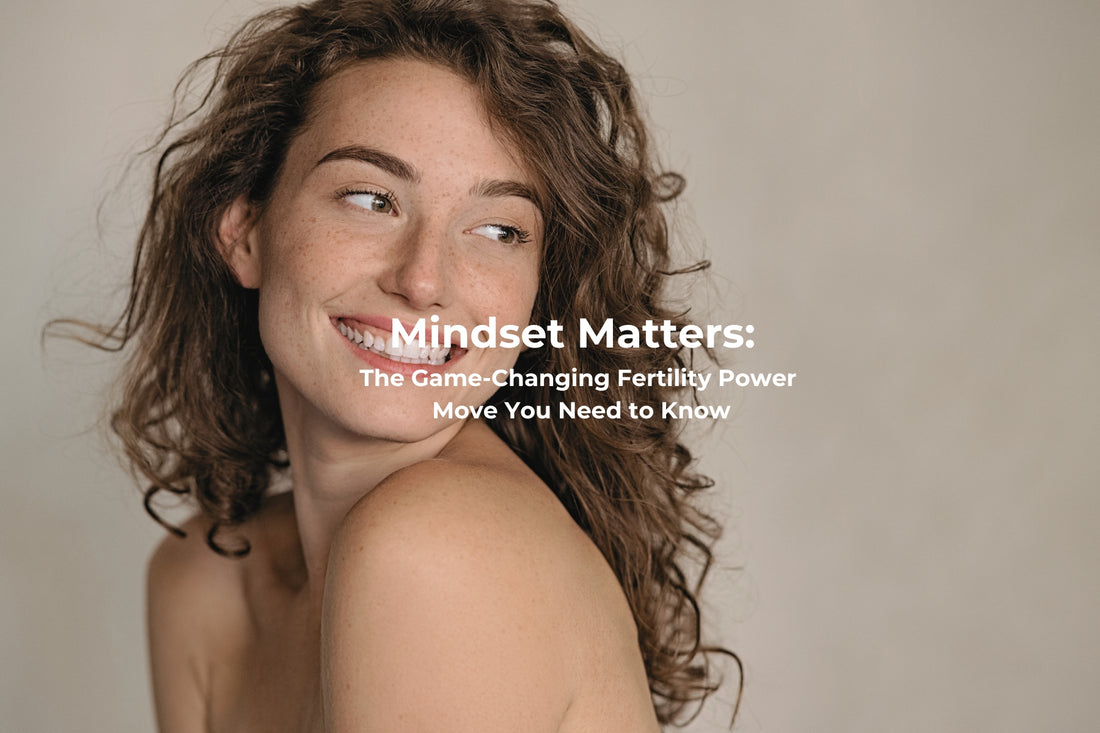
Mindset Matters: The Game-Changing Fertility Power Move You Need to Know
Infertility is the ultimate plot twist no one saw coming. One day, you’re casually deciding between a vacation or a new couch, and the next, you’re Googling things like “Can pineapple core actually help me get pregnant?” ( no one really knows, but we all try it anyway).
Amid the appointments, tests, and unsolicited advice from people who think yoga and essential oils can solve everything, there’s one game-changing tool most people overlook: your mindset. But before you roll your eyes and mutter, “Oh great, more toxic positivity,” hear me out. This isn’t about slapping a smile on your face and pretending everything’s fine while you scream internally. This is about rewiring your brain to survive the emotional marathon that is infertility.
Why Mindset Matters
Let’s start with the obvious: infertility sucks. It’s a rollercoaster of hope, disappointment, jealousy, and anger, all wrapped in a shiny bow of unsolicited baby advice from your aunt who had seven kids “without even trying.”
When you’re going through this, it’s easy to let the stress, grief, and self-doubt take over. And honestly? That’s normal. But staying in that headspace for too long can turn into a downward spiral. That’s where a mindset shift comes in—it’s not about ignoring the hard stuff; it’s about making space for both hope and reality.
Your brain is powerful. Like, manifest your dreams or sabotage your day before you’ve had coffee powerful. And the way you talk to yourself about your fertility journey matters.
What a Mindset Shift Really Looks Like
Let’s be clear: shifting your mindset doesn’t mean becoming Pollyanna. You’re allowed to cry when you see yet another pregnancy announcement. You’re allowed to feel angry, jealous, or sad. Mindset shifts aren’t about erasing those feelings—they’re about not letting those feelings set up permanent residence in your brain.
Here’s what it doesn’t mean:
• Pretending everything is fine. (It’s not fine. You know it. I know it. Moving on.)
• Plastering a fake smile on your face. This isn’t about becoming a Stepford Wife of Positivity.
• Ignoring the struggle. Infertility is hard, and it’s okay to admit that.
Here’s what it does mean:
• Reframing the narrative. Instead of thinking, “My body is broken,” try, “My body is on a journey, and I’m giving it everything it needs.” (Yes, even the pineapple core.)
• Focusing on what you can control. There’s a lot you can’t control in this process, but your mindset is one thing you can manage.
• Practicing self-compassion. You’re not failing. You’re learning. Be kind to yourself—this journey is hard enough without being your own worst critic.
Why It’s Not Toxic Positivity
Let’s talk about toxic positivity, aka the overly chipper cousin of real emotional support. You know the vibe: “Just think positive thoughts, and it’ll happen!” or “Everything happens for a reason!” (If you’ve ever wanted to throw a fertility-friendly smoothie at someone for saying that, you’re not alone.)
A healthy mindset shift isn’t about denying your feelings; it’s about balancing them. You can feel disappointed and hopeful at the same time. You can grieve what hasn’t happened yet while still holding space for the possibility of joy. This isn’t about forcing yourself to feel good—it’s about finding ways to feel better.
The Science of a Mindset Shift
Here’s the thing: your mind and body are connected. Stress, anxiety, and negativity don’t just live in your head—they can affect your physical health, too. Studies show that chronic stress can mess with your hormones, your sleep, and even your immune system.
By practicing things like mindfulness, gratitude, or reframing negative thoughts, you’re not just helping your mental health—you’re giving your body a better chance to thrive. No, it’s not a cure-all, but it’s a piece of the puzzle. Think of it as a fertility upgrade for your brain.
How to Start Shifting Your Mindset
Okay, so you’re on board. You want to stop doom-spiraling and start reprogramming your brain. But how?
1. Talk to yourself like you would a friend. If your bestie was going through this, would you tell her she’s a failure? No? Then don’t tell yourself that.
2. Create a mantra. It doesn’t have to be cheesy. Something like, “I am doing everything I can, and that’s enough,” works wonders.
3. Limit social media. Your feed full of baby bumps isn’t helping. Take a break—it’s not avoiding reality, it’s protecting your peace.
4. Celebrate small wins. Had a good blood test? Made it through a rough day? Take a moment to pat yourself on the back. Progress is progress.
5. Ask for help. Whether it’s therapy, support groups, or just venting to someone who gets it, don’t go it alone.
6. Dive into Hypnosis and Mind-Shifting Songs. Here’s where the magic happens. Hypnosis can help rewire those nagging, self-doubting thoughts while you’re in a deeply relaxed state, making space for positive beliefs to take root. Mind-shifting songs, on the other hand, act like a gentle nudge for your subconscious, offering comfort, inspiration, and a reminder that you’re stronger than you think.
At Twenty Six Cats Lab, we’ve got you covered. Our guided hypnosis sessions and specially curated mind-shifting songs are designed to support your mindset journey. Whether you need a calming reset, a boost of positivity, or just a little extra hope, we provide tools to help you navigate this rollercoaster with grace and grit.
The Bottom Line
Your mindset is the foundation for everything. By talking kindly to yourself, setting boundaries, and embracing tools like hypnosis and music, you’re giving yourself the best shot at not just surviving this journey but thriving through it.
Ready to start shifting? Check out our hypnosis sessions and mind-shifting songs at Twenty Six Cats Lab—because you deserve to feel empowered, hopeful, and supported every step of the way.
